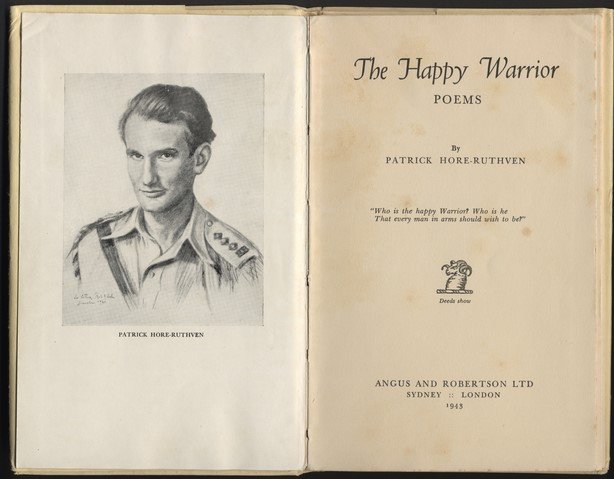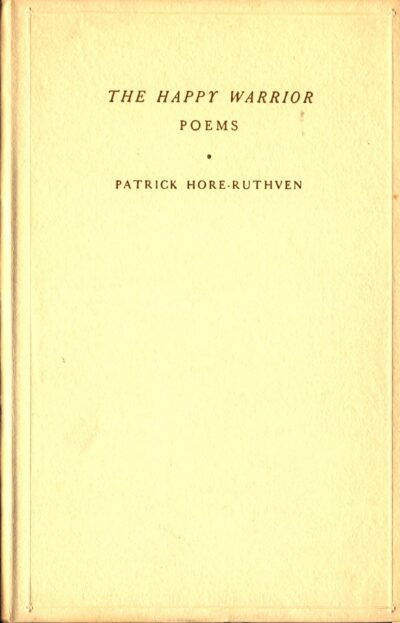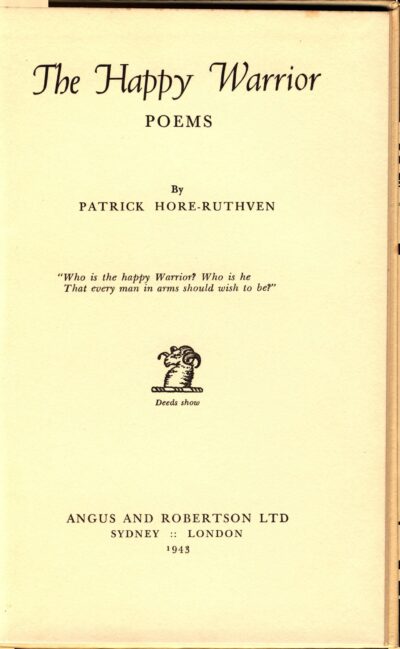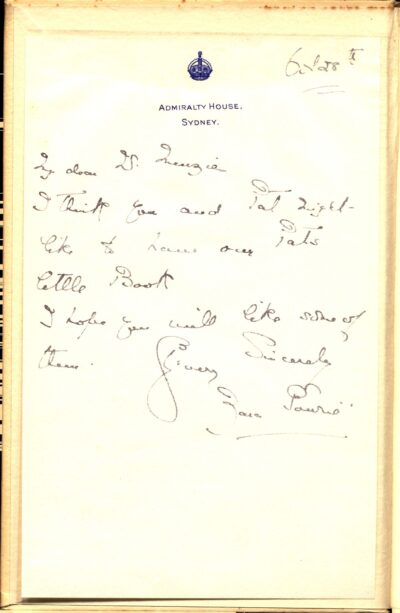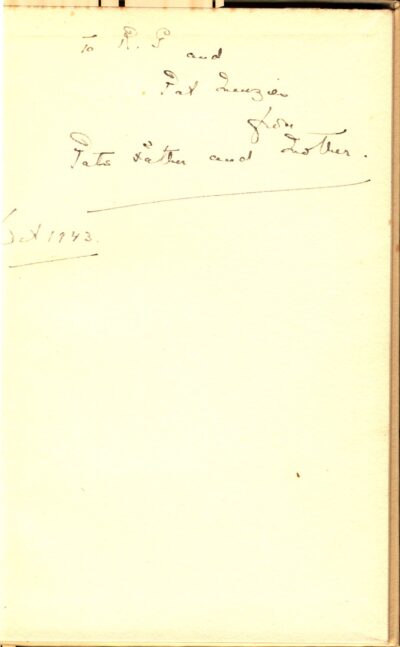Patrick Hore-Ruthven, The Happy Warrior: Poems (1943)
Patrick Hore-Ruthven was a daring British soldier and poet, who happened to be the son of Australian Governor General Lord Gowrie.
Born into a distinguished military family in 1913, Patrick was destined from birth to be a soldier. He attended Cambridge before enlisting in the Rifle Brigade and serving in Malta for three years. When World War Two broke out he saw action in North Africa before joining the staff of General Henry Maitland Wilson and the Seventh Australian Division. After six months Patrick grew impatient of his new administrative role, and consequently joined a Commando Unit which conducted a series of highly dangerous missions in the Western Desert. He would subsequently lose his life while fighting in Tripolitania in late 1942.
While serving, Patrick had written a series of war poems, many of which had been published in British and Australian newspapers, and in 1943 these were posthumously published as a book entitled The Happy Warrior. The book features a tragic preface written by Patrick’s mother Zara, who hoped that ‘these poems carry to all who read them the same assurance of the immortality of the soul that they have brought us’.
Lord Gowrie was Australia’s longest serving Governor General, holding the post from 1936 to 1945. During this time he became quite close with Robert Menzies, whom he swore in as prime minister on 26 April 1939. When The Happy Warrior was published the Gowries gifted Menzies a copy with inscriptions reading ‘To R.G. and Pat Menzies from Pat’s “Father and Mother” Oct. 1943’ and ‘My dear Mr Menzies, I think you and Pat might like to have our Pat’s little Book. I hope you will like some of these. Very Sincerely Zara Gowrie’.
Menzies was clearly quite taken by the poems and the personal tragedy that was associated with them. This was the time when Menzies was doing his series of radio broadcasts made famous by the ‘Forgotten People’ at 9.15pm each Friday night, and he was inspired to dedicate an entire episode to poetry and highlighting Patrick’s work. Menzies had a long history with poetry, which used to feature heavily in editions of Melbourne University Magazine he edited while a student during World War One.
On 3 December 1943 in a broadcast titled ‘The War Poet’, Menzies told his audience that ‘I do not assume the role of literary critic, but I do feel bound to say that no volume produced in this war has more movingly recalled the poetic flower of 1914 than this one. Admittedly, I did not open it as an unbiased reader, for it has been my pleasure for years to know his parents and when I turned the pages of young Patrick’s work I had in mind the simple courage and nobility of his father and the sweetness and loveliness of his mother’.
Menzies read four of Patrick’s poems, with titles such as ‘The Young Men’ and ‘Would a Million Stars?’. They addressed topics like Patrick’s friend dying during a raid on Rommel’s headquarters, as well as Patrick’s thoughts drifting to his young wife ‘a rich element in whose children’s inheritance will be this book’. Menzies concluded:
‘To me, nothing could demonstrate more the serene quality of the English mind than to recall that these lovely and moving poems were written at odd moments by a young man who was by profession a soldier and who would not have dreamed in ordinary conversation of admitting you to the secret that, while he studied strategy and tactics, he had another world of life in which he could move and hold high talk with the immortals’.
You might also like...
Sign up to our newsletter
Sign up for our monthly newsletter to hear the latest news and receive information about upcoming events.

